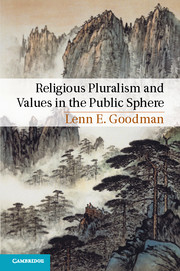3 - Minima and Maxima
Published online by Cambridge University Press: 05 June 2014
Summary
Some years ago I took part in an international meeting of philosophers. Of the 180 thinkers who attended, many took the occasion to showcase their values. Socialism was still much bruited in those days, and several speakers scrapped their prepared remarks to sing its praises. Many still imagined, despite Friedrich Hayek's cogent argument in The Road to Serfdom, that civil rights and human flourishing could be safe and well served under socialism – or only under socialism. Some thought basic liberties survivable even in a one-party state, where law and politics, the media and means of production, science, inquiry, and the arts, the councils of labor and sources of capital, the vehicles of distribution, stewardship of the land, and regulation of the marketplace were all gripped in a single set of hands. In that forum, I admired Hilary Putnam's courageous confession that socialist promises were “now universally discredited.”
Because this was an intercultural meeting, many of the philosophers celebrated relativism and its promised yield in tolerance and accommodation. Bimal Matilal, whom I remembered as a handsome young scholar at Oxford but who was now broken in health and pushed in a wheelchair by his wife, worked with spirit to distinguish relativism from pluralism. Keenly aware of the variance in the particularities of practice from one culture to the next, he scanned the traditions of India for norms worthy of universal adherence. He singled out respect for life, deference to truth, abhorrence of theft, and rejection of adultery. In each case he drew specific prescriptions from the broad norms he culled from India's rich religious and philosophical array. Although he cited Hindu and Buddhist scriptures and the spiritual wisdom of Gandhi, he strove not to rely on divine prescriptions.
- Type
- Chapter
- Information
- Religious Pluralism and Values in the Public Sphere , pp. 102 - 143Publisher: Cambridge University PressPrint publication year: 2014



